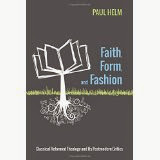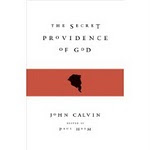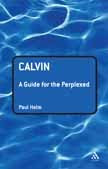In the course of his long discussion of the doctrine of
transubstantiation in the Institutes, Calvin wrote this about the body
of Christ: ‘The body with which Christ rose is declared not by Aristotle, but
by the Holy Spirit, to be finite, and to be contained in heaven until the last
day.’ And also, more generally
What is our flesh? Is it not that which consists of
certain dimensions? Is confined within a certain place? is touched and seen?
And why, say they, may not God make the same flesh occupy different places, so
as not to be confined to any particular place, and so is to have neither
measure nor species? Fool! Why do you require the power of God to make a thing
to be at the same time flesh and not flesh? It is just as if you were to
insist on his making light to be at the same time light and darkness. He wills
light to be light, darkness to be darkness, flesh to be flesh…..Flesh must
therefore be flesh, and spirit, spirit; each under the law and condition on
which God has created them.. Now, the condition of flesh is, that it should
have one certain place, its own dimensions, its own form. (IV.17. 24)
Turretin
Some years later Francis Turretin transposed these points into a general
approach to the senses in relation to the revealed mysteries. The basic
question is when the senses are relevant:
The question is not therefore whether the testimony
of the senses is in every case to be regarded, so that we should grant nothing
except what the senses can seize. For we grant there are many mysteries to
which the reason ad much less the senses cannot rise, such as the mysteries of
the Trinity, of the incarnation, etc. Rather the question is when the senses
judge of an object belonging and do not go beyond their proper sphere, must
their testimony be rejected or admitted? The question is whether faith
may be opposed to a well-directed judgment of the senses and overthrow it. This
we deny.
That is to say, the evidence of the senses is to be admitted when it
deals with an area in which that sort of evidence is relevant, when ‘a
spiritual is joined with a corporeal thing’. One of the problems with the
doctrine of transubstantiation is not that the presences of Christ at the
celebration of the Supper is mysterious – it certainly is - but that that
mysteriousness is construed in a way that violates the basic testimony of the
senses. In the Supper there is a double aspect - the corporeal is the vehicle
of the spiritual. Through the elements of bread and wine the presence of Christ
is brought near, as we recognize the elements for what they are, a matter in which
the senses are involved, and as the word accompanies their distribution and
provides us with the understanding of what is going on. To suppose that
Christ is bodily present under the appearance of the bread violates the
basic evidence of our senses, and has serious consequences for our
understanding of the real humanity of the risen Saviour. Further, it requires
that the real human body of Christ is distributed across countless locations
where the Supper is being celebrated.
So the body of Christ is a real human body, in the Aristotelian category of place or as Calvin preferred, referred to in Scripture as being at in one place at a time as any body is, and any teacup. Each with its own dimensions, its own form. (As Aristotle taught, as no doubt Calvin had not for forgotten). But we don't need Aristotle to teach us this. Such a body can be touched and seem, was touched and seen. It cannot there be a body under the appearance of bread, and so seen and yet not seen
The biblical support for this real and vital, though limited, place for
the senses in our understanding of the mysteries of our faith (when there is a
sensory component to these), and in not multipling mysteries unwarrantably, is provided by the place that the senses have in
the Gospels. For, Christ appeals to them to prove that it was not a
spirit that appeared to the disciples after the Resurrection. Doubting Thomas had his doubts dispersed by what he learned from his senses when in the presence of Jesus. Five hundred
people at once saw the risen Christ.
Further, the reception of the preaching of the faith involves the
senses. We must hear the preacher, read the book. If the senses are
systematically unreliable then how can we get anywhere by studying the Bible,
hearing the word, contemplating the works of God? Holding conversations with
others? Remembering what we have heard? This was supremely the case in the disciples being in the company of
the Incarnate Son, who they saw, and touched, and listened to. Did their senses
deceive them?
But how far ought we trust the senses in these matters? They are not
infallible, for the are subject to our imaginations and pre-dispositions,
tiredness, and ‘fevers and delirium’. It is necessary therefore to test
the senses, in obvious ways. Sometimes it may appear that the senses are
defective when in fact we come to a conclusion too quickly, as in the case of
Mary Magdalene who supposed that the risen Christ was the gardener.
The senses and nature and grace
Turretin’s carefully circumscribed, subordinate place assigned to the
reason and the senses in the understanding of Christian theology is testimony
to his belief that faith, the faith, sits atop nature, that grace perfects
nature. The relation of grace to nature is that nature is an indispensable subordinate
to grace. We see the perfection coming to be by the development of ‘right
reason’. Is there a dichotomy between nature and grace? Meaning? They are not
at odds, obviously. Is nature ‘autonomous, an ‘autonomous realm’? Meaning? No,
nature is not in control of itself, a purely secular realm, or source,
the product of blind forces, however blind the forces may be at the secondary causal
level. This nature is the effect of God’s creative agency. He created
mankind with reason, and he sustains human reason, which is a gift to those who
have it, and the senses, and memory, all gifts of God. Is this emphasis on reason and
nature Arminian? Now we are getting into the realms of fantasy. Is it the gift
of common grace? Certainly. The crucifiers of Jesus saw and handled the same body. These structural powers are upheld by sets of secondary
causes, and these in turn caused by God, the primary cause. The whole set-up is 'common' –
not correlated with or determined by the incidence or power or God’s
regenerating grace, but distributed to mankind in general as a result of God’s
undeserved goodness.










